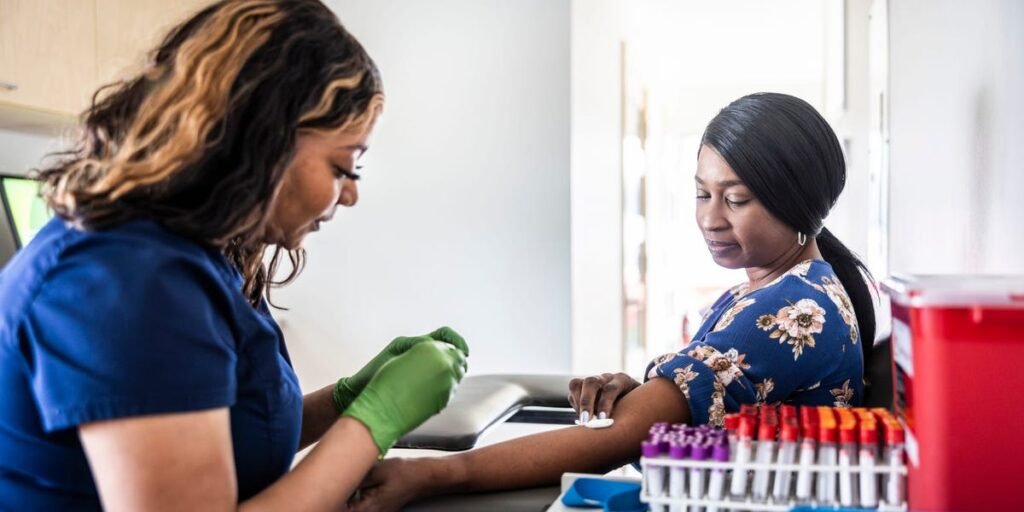The Food and Drug Administration has approved a blood test as a primary screening tool for colorectal cancer, opening the door for more people to get tested without paying hundreds of dollars out of pocket.
Known as Shield, the blood test is produced by the biotech company Guardant Health. Although the screening tool has been commercially available since 2022, patients often faced an out-of-pocket cost of $900.
The test is the first of its kind to receive FDA approval, which could prompt easier access for more patients, since Medicare and insurance companies are more likely to cover it.
The test can be completed via a blood draw at a routine medical exam, making it less invasive than a colonoscopy.
It works by detecting signals of cancer in the blood, such as DNA shed by tumors, according to the Guardant fact sheet. However, it’s more effective at flagging later-stage cancer.
While it’s not a substitute for other testing, as patients will still need a colonoscopy to confirm a diagnosis, it could help close the gap between patients who could benefit from screening and those who actually complete the recommended tests.
Dr. David Chung, a Harvard Medical School professor who published research on the test supported by Guardant, called the FDA approval a “tremendous leap forward” in screening options for colorectal cancer that could lead to life-saving early interventions.
“This decision will help make screening tests more broadly accessible and propel blood-based testing and CRC screening into a new era,” Chung said in a press release. “With increased screening rates and early cancer detection, many more lives can be saved.”
Colon cancer is on the rise, and early treatment is key
Colorectal cancer is expected to cause more than 50,000 deaths in the US in 2024, making it the second-leading cause of cancer-related death after lung cancer, according to the American Cancer Society. The organization also estimates more than 150,000 new cases of colorectal cancer will be diagnosed this year.
Older adults are increasingly less likely to die of colorectal cancer, in part thanks to better screenings that can catch the disease early.
Colon cancer is highly treatable when caught before it spreads to other areas of the body, according to the National Cancer Institute.
However, the rate of diagnoses and deaths from colon cancer has been steadily going up in people under 45, alarming doctors and researchers.
We don’t fully understand why younger people are getting colon cancer and dying from it more frequently.
Risk factors for colorectal cancer include genetics, a family history of colon cancer or colorectal polyps, and other health conditions such as inflammatory bowel disease.
Strategies to help reduce the risk of colon cancer include eating a healthy diet with plenty of fiber, exercising regularly, and avoiding alcohol and tobacco use.
Read the full article here


